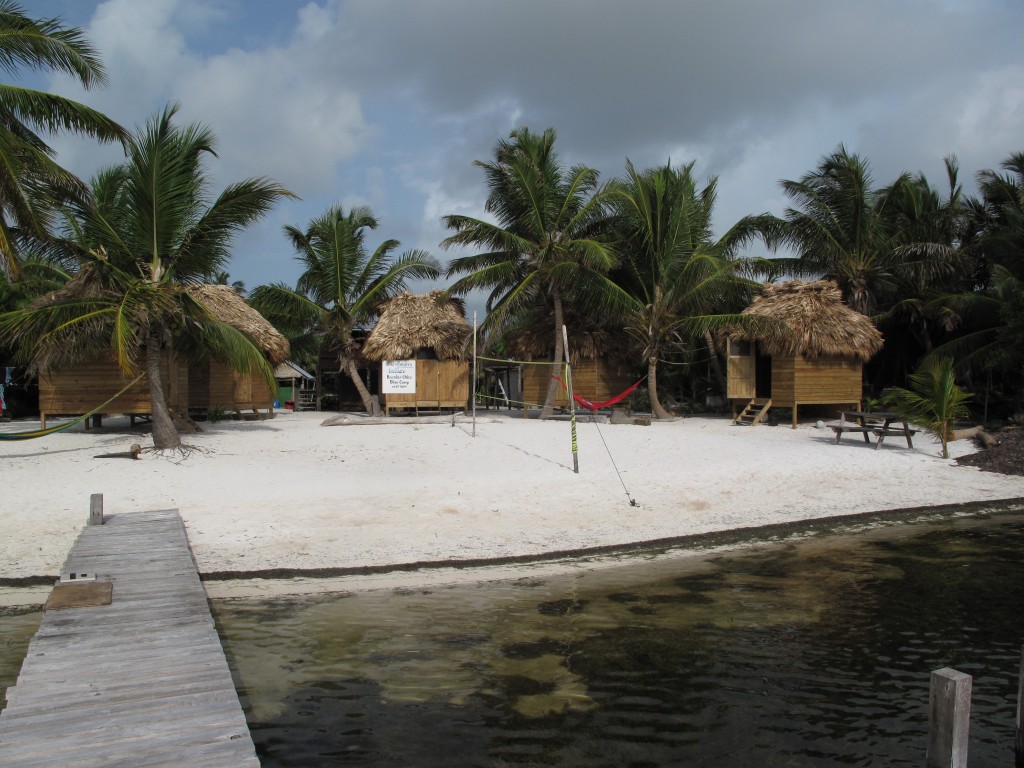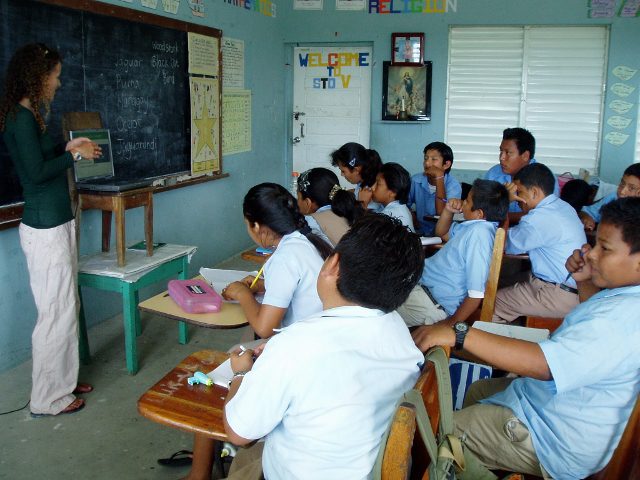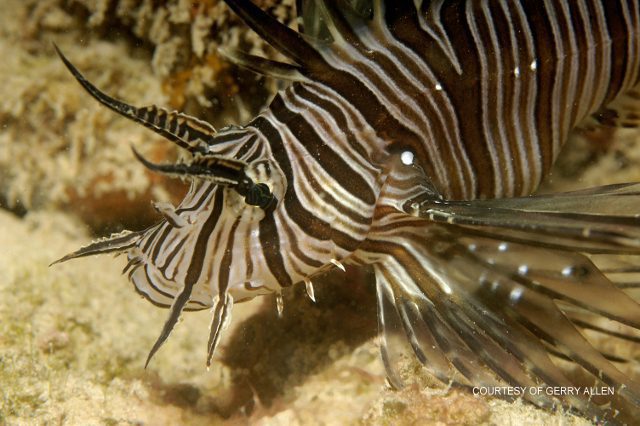by Colin Engel, Blue Ventures volunteer, Belize
Monday 7 May
This is the day we pack up camp and leave. The first boat took the early birds back at dawn to Sarteneja, leaving half of us some further hours to tidy up and secure the site. The local fauna appears to react to the decreased human presence by already starting to crowd in: frigates and vultures swoop lower, sensing our departure.
Once back in the village I am reunited with the family I did the home stay with, on a previous expedition. They are delighted to see me, and it’s time for a good old catch-up.
Tuesday 8 May
There are some obligatory office duties to do. It’s fun to collect data, but it has to be entered on file as well so it can be analysed later. At least the data entry reminds you of all the great dives we have had and the species we identified. I also helped to compile a Question & Answer Sheet for tomorrow’s secondary school trip to nearby Shipstern Nature Reserve. I try to anticipate what topics the rangers will cover.
Wednesday 9 May
Morning – we pick up the students for the trip to Shipstern, and yes, we have correctly guessed most of the key points the ranger wants to make. The children listen closely and write down the answers on their sheets. They particularly like the butterfly house, for which we forego insect repellents: unfortunately the mosquitoes seized their chance as well.
Thursday 10 May
We drop in early on the village Pre-School; we talk to the toddlers about fish, including sharks, as most of their fathers are fishermen. We hand round some outline drawings for them to colour in – one boy is particularly artistic with a stoplight parrot fish.
For the afternoon we trek over to the secondary school to meet up again with our Shipstern trippers, to find out how much they absorbed from yesterday’s outing. I lead a feedback session for their Question & Answer Sheets, followed by a joint presentation with the Science Officers covering the wider picture of interactions of habitats, ecology and economic development. They can be challenging issues, but the class hang on in with us and we hope that the conversation carries on at home with their parents.
Friday 11 May
We go down to the seafront with the remaining stocks of culled lion fish. The lion fish is an invasive species in the Caribbean and is devastating the native fish populations as they are extremely predatory. We host a late morning presentation with an offer of a free lion fish lunch at the Internet Cafe near the dock, and we round up the fishermen maintaining their boats. A good crowd arrive to get a cool drink, lunch and listen to our presentation on the impact of lion fish and the imbalance of the food chain. The demonstration includes how to catch them, store them and safely remove the venomous spines. One seasoned fisherman, who has never previously handled a lion fish steps up, takes up a sharp knife and expertly fillets and de-spines a specimen. He gets a round of applause from his peers.
A lively discussion sparks up about the commercial possibilities of marketing the lionfish meat, during the no take seasons for conch and lobster, when the boats are normally idle. The debate is largely in Spanish, but I get the drift: they are interested by the commercial options here…
Saturday 12 May
…as am I, whilst waiting at Belize City airport for the plane home. The previous day’s engagement with the fishing families was the most revealing aspect of the expedition. Can we find ways to bring together good conservation practice and maintenance of community livelihood?




